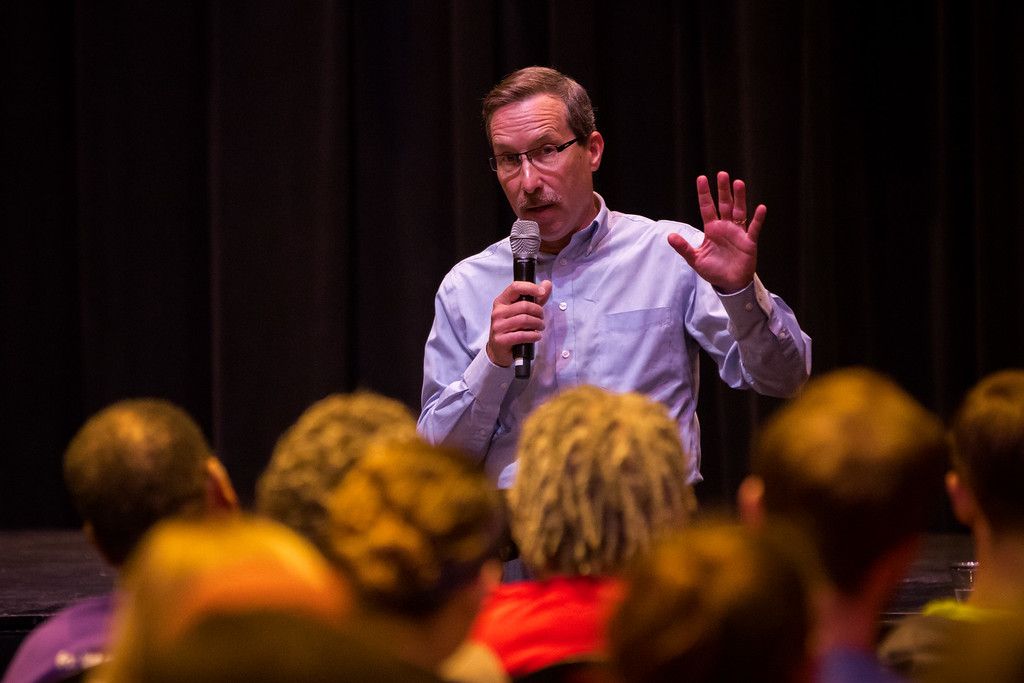by Bruce T. Gourley
Published December 2010
(Baptist Studies Bulletin Archives Index)

What is your church doing to celebrate the Advent and Christmas season?
Historically, prior to the twentieth century, Christmas (much less Advent) was little discussed within Baptist congregations. Baptist historians have rarely addressed the manner in which Baptists viewed or observed the Christmas season. Leon McBeth’s The Baptist Heritage is one of few Baptist surveys (of any time period) to reference Christmas.
Noting that Baptists of the eighteenth century viewed Christmas “as worldly and popish” (a view reflective of sixteenth century Puritanism), McBeth quotes Samuel Jones, a Baptist student at Isaac’s Eaton Hopewell Academy (the first Baptist educational institution in America) who wrote the following diary entry on December 25, 1757: “Christmas Day! But our school goes on as usual. The only difference was that we had two big turkeys for dinner. Mr. E(aton) told us that he did not observe Christmas as he was certain that our Savior was not born on the twenty-fifth or any other day in December.” (McBeth, 250) As for Jones, he personally believed that there was no harm in “celebrating some day in commemoration of such a great event.” (Hywel M. Davies, Transatlantic Brethren: Rev. Samuel Jones, 1735-1814, and His Friends, Baptists in Wales, Pennsylvania and Beyond. Cranbury, N.J.: Associated University Presses, 1985, p. 82).
Yet McBeth later notes Lottie Moon’s 1887 suggestion that Baptist women in Virginia collect a special Christmas offering for foreign missions. (Among Baptist history surveys that do mention Christmas, the starting point is often at this very juncture.)
So, what happened between 1757 and 1887?
Historical references to Baptist congregations celebrating Christmas prior to the 1880s are rare. The first celebration of Christmas in a Baptist church may have taken place in 1772, and quite by chance of the calendar, at that. Mr. Kelly, the pastor of the Baptist Church in Newport, Rhode Island had begun holding lectures (or sermons) on Wednesdays in the prior year, and in 1772, Christmas fell on a Wednesday. Accordingly, Kelly decided to focus his December 25 sermon on the “Birth and Incarnation of the Blessed Savior.” The following year, Kelly intentionally moved his weekly Christmas week sermon to Christmas day, and Congregationalist minister Ezra Stiles (witness to the occasion) surmised that “it is probable … this will begin the introduction of Christmas among the Baptist Churches.” (see Penne L. Restad, Christmas in America: A History. New York: Oxford University Press, 1995, p. 30).
Stiles prediction was a long time coming. Nineteenth century newspaper and local church records indicate that probably few Baptist congregations formally celebrated Christmas prior to the 1880s. One partial exception was the Strong-Place Baptist Church in Brooklyn, New York. While it is unclear if the church celebrated Christmas in the 1850s, in 1852 they presented their pastor with $725 “as a Christmas present.”
By the 1890s, however, Christmas celebrations were common among Baptist congregations. Rather quickly, Christmas evolved into a time of special music and events within many Baptist churches. This rapid transformation took place even as churches and denominations alike were adopting models of organizational and operational efficiency that characterized the business world at the turn of the twentieth century.
Ironically, the same business forces that became commonplace in church and denominational life in the 20th century also transformed Christmas. By the close of the century, the role of pastor resembled that of a CEO in many instances, while Christmas was established as a cash cow for corporate America – the most profitable event of the year for many manufacturers and retailers. At the same time, many Christians in America by the late 20th century routinely expressed resentment that Christmas was becoming increasingly secularized … unaware that for much of the prior century many Christians refused to celebrate the holiday because of its pagan origins and worldliness.
The history of Christmas in the era of Baptists, in short, is a reflection of changing views concerning holidays, celebrations, and religious expression. Yet perhaps the ambivalence long associated with this Christian holiday is not without reason, for the message of peace and hope that God through Christ conveyed to earth’s citizens some two thousand years ago is just as radical today. The Christ that many celebrate this holiday season bears faint resemblance to the Jesus of the Gospels. Outside of seasonal rhetoric, the peace that Christ bore is too often dismissed as fantasy. At the same time, the hope that Christ delivered to humanity seems of little relevance in starving households throughout the world today.
And so this Advent and Christmas season, we celebrate together in unity and reflect in our own quiet moments. Christ has come. He is with us. Peace and hope mark his presence in our lives. We rejoice that the world is being transformed. Yet the presence of Christ throughout our planet is far from complete. In our unguarded moments, we know that all is not really well in our lives and our world. We acknowledge that the coming of Christ today is expressed in human hearts and hands that together seek further deliverance and reconciliation in individual lives and society. Christ is ever arriving within and around us, and we receive and give in gratitude.
